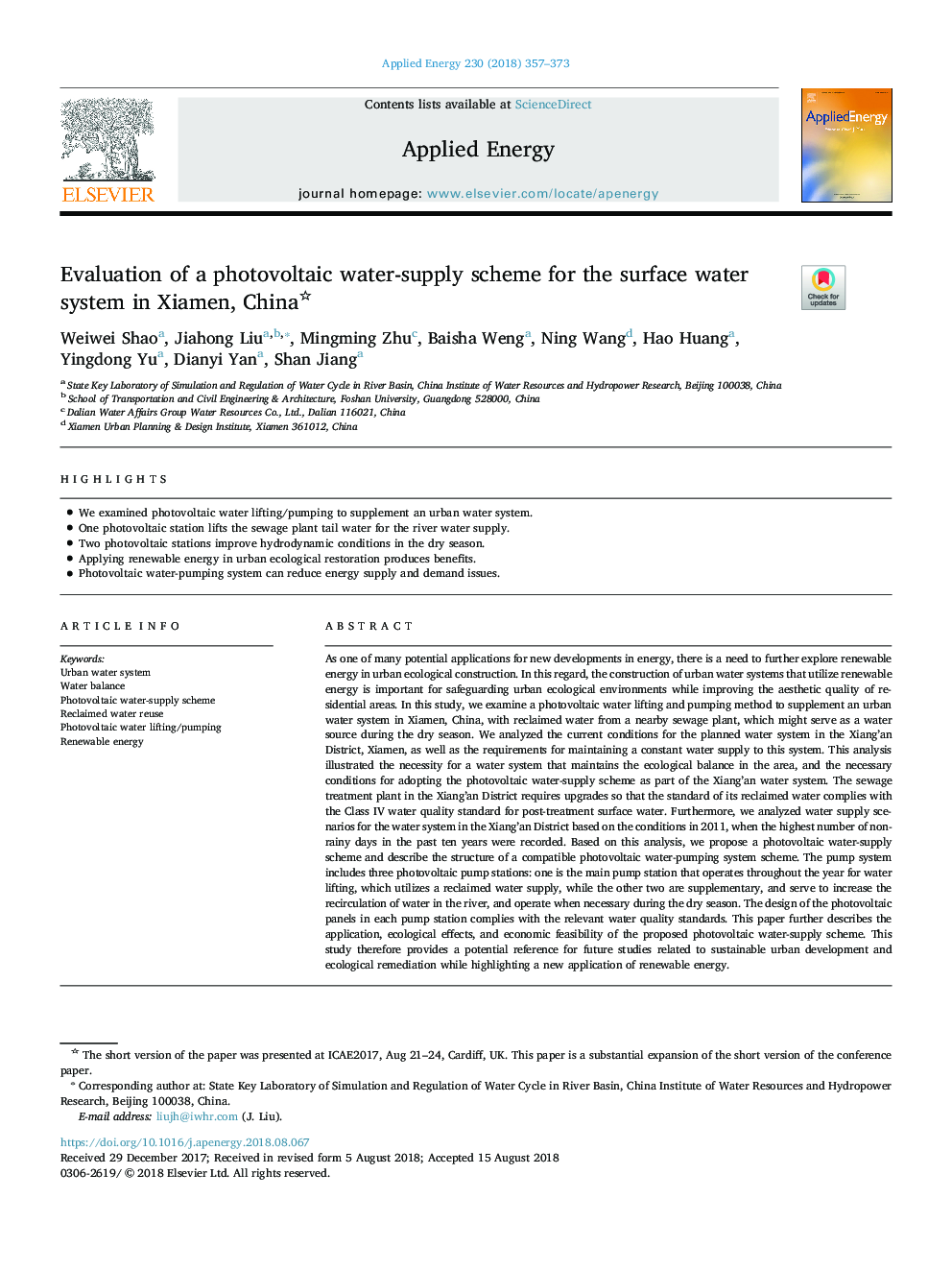| Article ID | Journal | Published Year | Pages | File Type |
|---|---|---|---|---|
| 10131642 | Applied Energy | 2018 | 17 Pages |
Abstract
As one of many potential applications for new developments in energy, there is a need to further explore renewable energy in urban ecological construction. In this regard, the construction of urban water systems that utilize renewable energy is important for safeguarding urban ecological environments while improving the aesthetic quality of residential areas. In this study, we examine a photovoltaic water lifting and pumping method to supplement an urban water system in Xiamen, China, with reclaimed water from a nearby sewage plant, which might serve as a water source during the dry season. We analyzed the current conditions for the planned water system in the Xiang'an District, Xiamen, as well as the requirements for maintaining a constant water supply to this system. This analysis illustrated the necessity for a water system that maintains the ecological balance in the area, and the necessary conditions for adopting the photovoltaic water-supply scheme as part of the Xiang'an water system. The sewage treatment plant in the Xiang'an District requires upgrades so that the standard of its reclaimed water complies with the Class IV water quality standard for post-treatment surface water. Furthermore, we analyzed water supply scenarios for the water system in the Xiang'an District based on the conditions in 2011, when the highest number of non-rainy days in the past ten years were recorded. Based on this analysis, we propose a photovoltaic water-supply scheme and describe the structure of a compatible photovoltaic water-pumping system scheme. The pump system includes three photovoltaic pump stations: one is the main pump station that operates throughout the year for water lifting, which utilizes a reclaimed water supply, while the other two are supplementary, and serve to increase the recirculation of water in the river, and operate when necessary during the dry season. The design of the photovoltaic panels in each pump station complies with the relevant water quality standards. This paper further describes the application, ecological effects, and economic feasibility of the proposed photovoltaic water-supply scheme. This study therefore provides a potential reference for future studies related to sustainable urban development and ecological remediation while highlighting a new application of renewable energy.
Related Topics
Physical Sciences and Engineering
Energy
Energy Engineering and Power Technology
Authors
Weiwei Shao, Jiahong Liu, Mingming Zhu, Baisha Weng, Ning Wang, Hao Huang, Yingdong Yu, Dianyi Yan, Shan Jiang,
